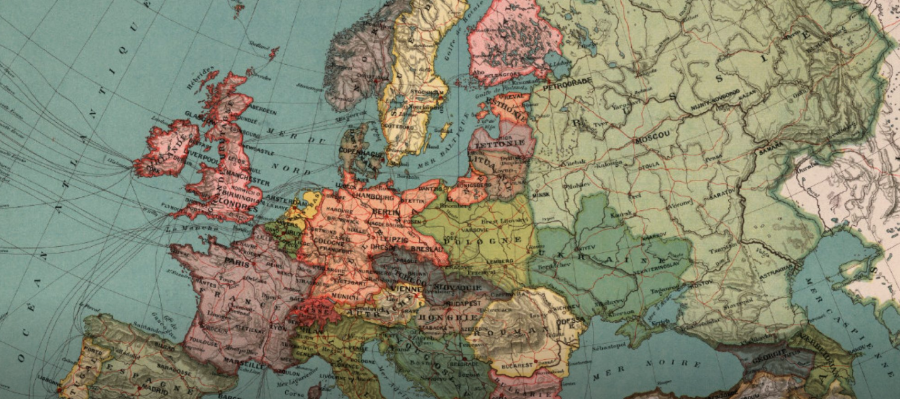One Hundred Years On: a New Central Europe from the Ruins?
As part of the project 1918 CEE Identity, Gábor Egry has written an essay that relates to the approaching hundred year anniversary of the collapse of the Central and Eastern European empires, and author analyzes, among other things, the common historical heritage of these newly created states.
The aim of the project 1918 CEE Identity was to create a web based tool focused on the post 1918 developments regarding ethnic minorities in the Visegrad region.It is envisioned to serve as a tool for conveying insights not only about the distant past, but also for understanding its legacy in the region’s more recent history.
The idea of discovering of ethnic diversity on local level was a natural result of conference My Hero Your Enemy that took place in 2011 in Prague and 2015 in Brno. Both events were among other gathering of leading experts on contemporary history of Central Europe. During discussions the question of local “histories” was raised. How we can discuss “big stories” of independent nations in Visegrad region since local perspectives remain barely discovered? Therefore this project came up as an answer to national “stories” to have a perspective on very local situation in V4 region. Data from the ethnic composition of Brno, Olomouc and Hradec Králové censuses can be found here.
As part of this project, Gábor Egry has written an essay titled One Hundred Years On: a New Central Europe from the Ruins?:
The arrival of the 100-year anniversary of the collapse of Central and Eastern European empires at the end of WWI has generated increasing interest in history within societies of the Visegrad countries. While memories of the momentous changes of 1918 have already slipped beyond the boundaries of communicative memory, the significance of these events - carefully nurtured by national historiographies since they occurred - is conducive to a more intensive process of recollection and reappraisal in the coming year(s). Historians, the broader public and politicians will unavoidably engage with the memory of the end of the WWI and offer their own perhaps uninspired, perhaps idiosyncratic, and perhaps really innovative, novel views and interpretations of the events of the period.
One hundred years are seemingly not enough to change the profound differences in basic attitudes prevalent in Central Europe at the end of WWI. Taking only the examples of the V4 countries, at least three different and lasting perceptions of their independence emerged not long after the events.
The whole essay is available on the PDF button on the right.
#CEE #Visegrad #IdentityResearch Fellow (until September 2018)
Topics: Political parties, National identity, V4
Staroměstské náměstí 4/1
Prague 1 - Staré Město
110 00
tel.: +420 212 246 552
email: europeum@europeum.org
https://www.europeum.org

